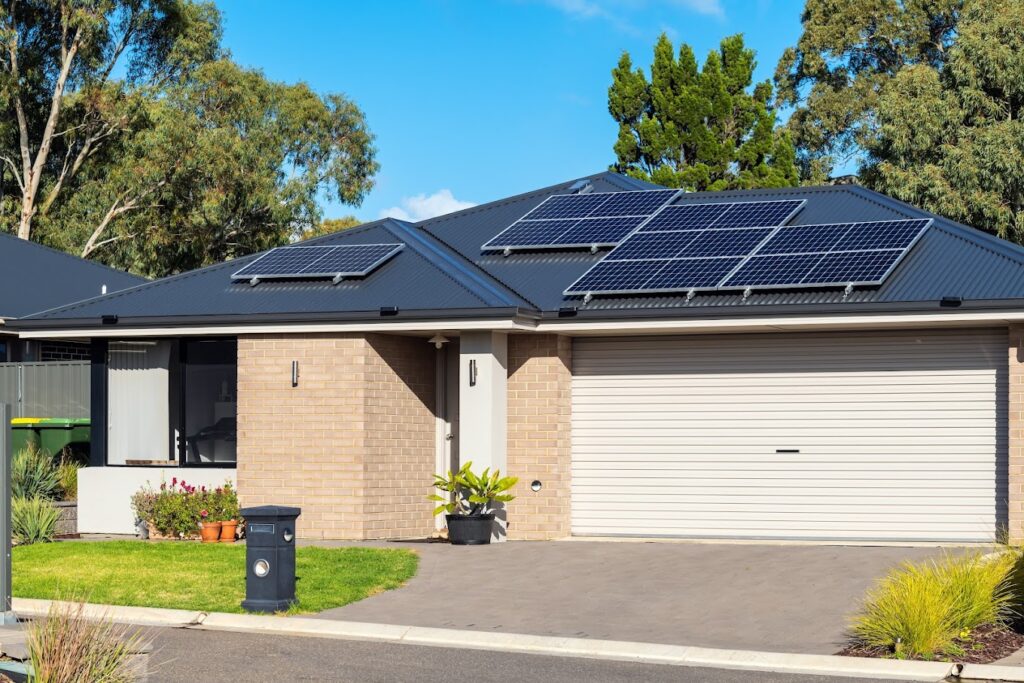About Us
We are a young and innovative company specializing in cutting-edge solar technologies. Committed to sustainability and efficiency, we provide customized solar solutions for residential and commercial clients. Join us in creating a brighter and greener future.
Honest
Above all else, we strive to be honest in everything we do. Today, there are too many solar companies “pushing for the sale”, even it is means delivering dishonest and inaccurate information. Our goal is to deliver the accurate information so you can make an informed decision prior to signing contracts.
Knowledgeable
Our team consists of some of the most knowledgeable in the industry. We strive to promote from within which means all of our sales staff have been trained with an installer on the roof at some point. We do this to ensure they know every component of a solar system and can intelligently discuss your solar solution.
Professional
We pride ourselves in setting the standard for professionalism in the solar industry. Our team understands that solar is a huge investment and it takes time to make an informed decision. Our team never tries to “hard close” you on the spot and gives you plenty of time to make your decision on purchasing a system.
Our Services
Pellentesque habitant morbi tristique senectus et netus et malesuada fames ac turpis egestas. Vestibulum tortor quam, feugiat vitae, ultricies eget, tempor sit amet, ante. Donec eu libero sit amet quam egestas semper. Aenean ultricies mi vitae est. Mauris placerat eleifend leo.
Pellentesque habitant morbi tristique senectus et netus et malesuada fames ac turpis egestas. Vestibulum tortor quam, feugiat vitae, ultricies eget, tempor sit amet, ante. Donec eu libero sit amet quam egestas semper. Aenean ultricies mi vitae est. Mauris placerat eleifend leo.
Pellentesque habitant morbi tristique senectus et netus et malesuada fames ac turpis egestas. Vestibulum tortor quam, feugiat vitae, ultricies eget, tempor sit amet, ante. Donec eu libero sit amet quam egestas semper. Aenean ultricies mi vitae est. Mauris placerat eleifend leo.
Pellentesque habitant morbi tristique senectus et netus et malesuada fames ac turpis egestas. Vestibulum tortor quam, feugiat vitae, ultricies eget, tempor sit amet, ante. Donec eu libero sit amet quam egestas semper. Aenean ultricies mi vitae est. Mauris placerat eleifend leo.
Pellentesque habitant morbi tristique senectus et netus et malesuada fames ac turpis egestas. Vestibulum tortor quam, feugiat vitae, ultricies eget, tempor sit amet, ante. Donec eu libero sit amet quam egestas semper. Aenean ultricies mi vitae est. Mauris placerat eleifend leo.


Frequently Asked Questions
Will solar work on my home?
Solar can work for most homes. Its effectiveness depends on factors like roof orientation, size, and condition, as well as sunlight exposure in your area. Homes with south-facing roofs or minimal shading typically perform best, but even homes in less sunny regions can benefit. A professional consultation can help assess your roof and energy needs to determine if solar is a good fit for your home.
What is Net Metering?
Net metering is a billing arrangement that allows homeowners with solar panels to send excess electricity back to the grid. In return, they receive credits that offset their future electricity bills. When your solar system produces more energy than you use, the excess is fed into the grid, and you are credited for it. When your system isn’t generating enough power (e.g., at night), you can draw from the grid, using the credits you’ve accumulated to reduce your electricity costs.
How many solar panels will I need?
The number of solar panels you’ll need depends on your energy consumption, the efficiency of the panels, and the amount of sunlight your location receives. For a home that uses about 20,000 kWh per year, you would typically need around 40 solar panels. A professional assessment can provide a more accurate estimate based on your specific energy usage and roof space.
What specs should I look for in a solar panel?
When choosing solar panels, consider key specifications such as efficiency, wattage, durability, and warranty. Efficiency measures how much sunlight a panel converts into electricity, with higher efficiency panels producing more power in less space. Wattage indicates the amount of power generated, with typical residential panels ranging from 300W to 400W. Look for panels with a 25-year performance warranty to ensure long-term reliability, and pay attention to the temperature coefficient, which shows how well a panel performs in hot weather. Finally, choose panels from reputable manufacturers with proven performance records to ensure quality and value.
Do you offer financing?
Yes, we offer financing to qualified buyers through third party lenders.
Will solar really save me money?
Yes, solar can save you money over time. By generating your own electricity, you reduce your reliance on the grid, which lowers your monthly energy bills. The savings increase as energy prices rise, and depending on your location, incentives like tax credits and rebates can help reduce upfront costs. While there’s an initial investment, most homeowners see a return on investment within 5-10 years, after which the electricity is essentially free, leading to long-term savings.
What is the 30% Investment Tax Credit?
The 30% Investment Tax Credit (ITC) is a federal incentive that allows homeowners to deduct 30% of the cost of their solar panel system from their federal taxes. This includes the cost of the panels, installation, and related expenses. It’s a significant financial benefit that helps reduce the upfront cost of going solar, making it more affordable. The credit is available for both residential and commercial solar systems and can be claimed in the year the system is installed.
What’s the difference between a string and Micro-Inverter?
A string inverter connects multiple solar panels in series to a single inverter, which converts the DC electricity into AC. While cost-effective and easy to install, it can be less efficient if one panel is shaded or underperforming, as it affects the entire string. In contrast, a micro-inverter is installed on each individual panel, allowing them to operate independently. This increases efficiency, particularly when some panels are shaded or positioned differently, as issues with one panel don’t affect the others. While more expensive, micro-inverters can offer better performance in certain setups.
